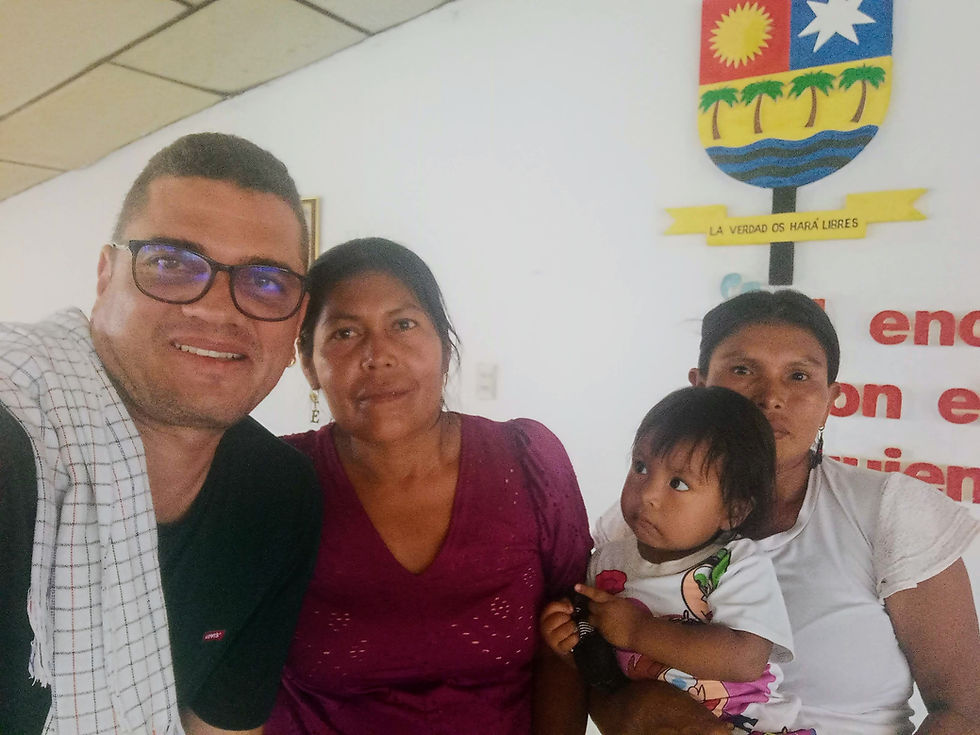Agroindustry with vulnerable comunities in Colombia
- Apr 28, 2024
- 1 min read
Updated: Apr 30, 2024
The Indigenous, Afrocolombians and small farmer communities of the Cauca department in Colombia have been historically affected by the phenomenon of drug trafficking since the 70's, until today. They were initially displaced, recruited and killed by illegal armed groups that promote the cultivation, processing and distribution of narcotics and then they were fumigated with glyphosate, mistreated and stigmatized by the government's armed forces with the implementation of the polemical "Plan Colombia" (Romero, M. y Silva, S. 2005).

Siapedara Pueblo Indigenous Community, Guapi, Timbiquí, Cauca November 2023
For this reason, it is important to implement viable productive projects from the cultural, social, economic and environmental point of view, which guarantee the Integral Human Development that communities have lost due to the phenomenon of drug trafficking. Projects must be medium to long-term and with a strong Corporate Social Responsibility component that contributes to sustainable development.
The potential for sustainable agro-industrial development in these communities is enormous, yet there are very few successful experiences of rural development in these areas. Although there are many NGOs, agencies and organizations that are supposed to support these communities, Why is it that until today, more than 50 years after the beginning of the phenomenon of drug trafficking, there is very little progress with respect to the integral recovery of these communities?

Comments